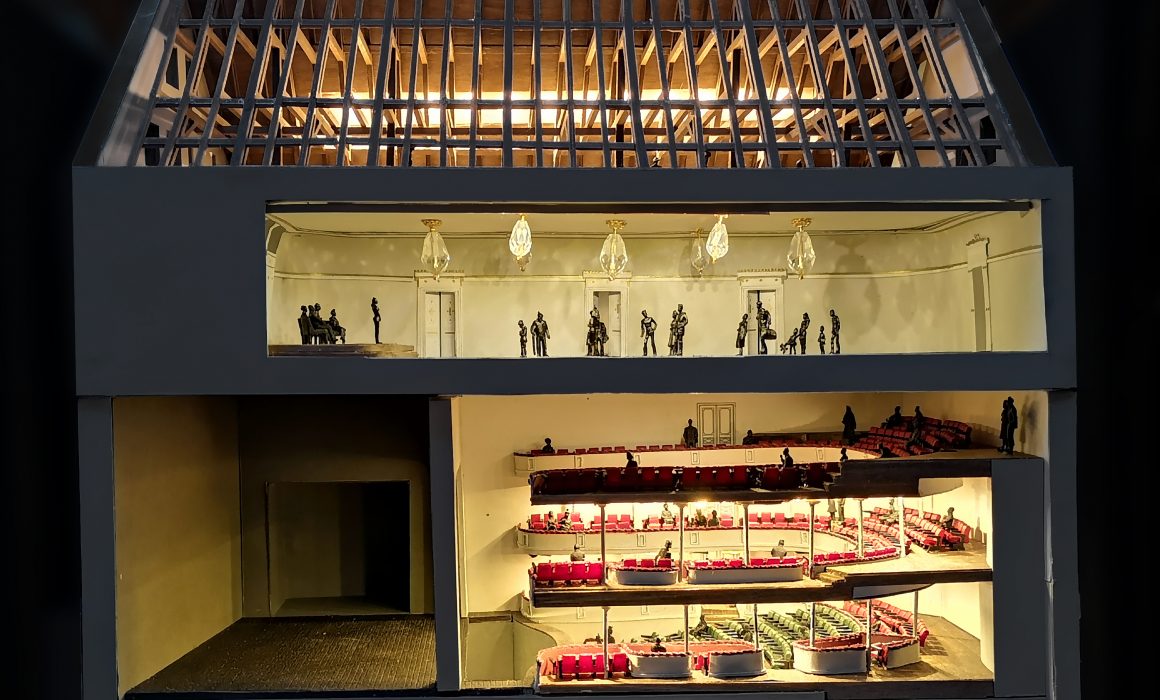Riga Wagner Theatre is handed over to the builders
At the beginning of this week, the acceptance and handover act was signed and the Riga Richard Wagner Society (RRVS) has fully handed over the Wagner Theatre to the main contractor, SBSC.
In February this year, it was reported that a total of €20 million had been raised for the renovation of the Wagner Theatre – €15 million from the Emissions Trading Instrument (ETS) and €5 million from the German government. With the funding secured, the project was able to get off the ground; in total, more than €40 million is needed to revitalise the house.
Work is currently continuing on the technical design of the Wagner Theatre – all the main artistic and technical design solutions have been developed, while the restoration and renovation of the building has already been agreed with the National Heritage Office. At the end of July, the building permit for the demolition works was received – the partition walls will be removed, as well as the historic stoves and parquet floors, which will be restored and used in the restored theatre building. The project is scheduled to be submitted to the Riga Construction Board in September.
The vision for the revival of the Wagner Theatre in Riga is to create a beacon of European culture in Riga. Over the next few years, the unique 5000 square metre building ensemble in Old Riga will be renovated and given a new lease of life. The importance of the project is also confirmed by the patrons of the Wagner House restoration project – former President of Latvia Egils Levits, President of the Federal Republic of Germany Frank-Walter Steinmeier, and Eva Wagner-Pasquier, former artistic director of the Bayreuth Festival and great-granddaughter of Richard Wagner.
The restoration of the Wagner House will bring a number of important benefits, not only in terms of the diversity and accessibility of cultural events for the people of Latvia, but also in terms of strengthening the image of Riga and Latvia as a cultural centre and the link with Richard Wagner, who was Kapellmeister at the House for two years (1837-1839). The project will not only renovate the building and the theatre hall, but will also create masterclasses and a Richard Wagner museum. The house will realise Wagner’s vision of “GesamtkunstWerk21″ – an incubator for all art forms that will become an international centre for young artists worthy of the 21st century.
Last year, the main contractor, SBSC, was selected through a public tender process, with Sarma un Norde Arhitekti as the main designer, and Būves un Būvsistēmas SIA as the engineer and construction supervisor. Zaiga Gailes birojs” has been hired as a subcontractor for the architectural and interior design. Experts from other countries have also been brought in – for example, theatre technology solutions are being developed by Theater Advies from the Netherlands, while Nagata Acoustics, headed by Yasuhisa Toyota, are acting as consultants on theatre acoustics, having been involved in the design of the Elba Philharmonic and Paris Philharmonic, as well as many other notable projects.
The project “Reduction of greenhouse gas emissions at the Riga Wagner House”, 4 Riharda Wagner Street, Riga, LV-1050, by renovating and restoring the Riga Wagner House” is supported by the Emissions Trading Instrument, the German Ministry of Foreign Affairs and the German Embassy in Riga.




